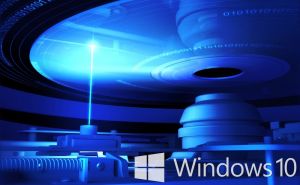Have you ever experienced a hard disk crash? Hopefully you haven't and won't, but it is always better to come prepared, so let's speak about hard drive repair tools. And just in case you don't know what a hard drive (or HDD) is, let's have a quick recap.
An HDD is a storage device that uses rapidly rotating disks covered with magnetic material for storing data. The written data is preserved even when the disk is turned off. As you might know, the information on your hard disk is organized in the form of sectors, which form a unit of data of 512 bytes. Since HDDs have moving parts in them, they're prone to wear and tear, and over time they get clusters of data that cannot be read – these are called bad sectors. Growing bigger day by day when left unattended, these may cause even more serious damage to your hard drive.
Let's make a quick rundown of what causes bad sectors to appear. First off, there's bad hardware quality. Unfortunately, this cannot be helped, so it's entirely up to your luck. Next is the abnormal shutdown of your PC. Usually it is easily avoidable, unless you're facing system errors and have to force-reboot your PC. The last common cause is malware. Viruses may damage your hard drive and thus cause loss of data in damaged sectors.
Since we are going to speak about software tools that can help you recover bad sectors on your HDD, hard bad sectors (caused by physical disk damage) are out of our scope; besides, these often can't be repaired at all. Logical errors, however, or soft bad sectors, can not only be repaired, but you can also prevent them to some extent. All the software fixers repair those in the same manner: the damaged partition simply gets overwritten with zeros. So, which program to go for?
I'll cover Disk Heal, Hard Disk Sentinel, and PC Tools Disk Suite as well-known examples of this type of software. The first one is free to use, and the rest are shareware. It may be somewhat hard to say how good they actually are at repairing bad sectors; but as we already know, the process is hardly rocket science. So we'll just focus on how nice they are to use.
Disk Heal
I think the best selling point of this tool is that it's free. The interface is extremely simple and full of red color, mainly in the text. Ugly as it is, though, it is pretty easy to use, as everything is explained on the go. The app's main purpose is to fix errors caused by viruses, but it can also help you tweak your system to improve security. All in all, it might be a good starting choice, quite easy but powerful.
Hard Disk Sentinel
 Hard Disk Sentinel Main Interface
Hard Disk Sentinel Main Interface
This one is a paid tool and you quickly feel the difference coming from the previous freebie, even in the interface. It provides loads of information about the HDD condition, including the estimated lifetime of your hard drive. It can also carry out disk tests and suggest best usage patterns. Even though the interface is somewhat cluttered with icons, it is still easy to learn and comfortable to use. Besides, it is very easy on the eyes. I would recommend this app for those who do not want to spend a lot of time learning how to use it, but just want to keep their HDD in its top shape.
PC Tools Disk Suite
 PC Tools Disk Suite Repair HDD Window
PC Tools Disk Suite Repair HDD Window
This one is the most expensive of the three and the most feature-rich. You can do more than just repair your HDD – you can optimize it, clean it, create partitions, defragment your hard drive, and even back up your data. The interface design is simple and highly visual. The main advantage of the tool is its versatility: you have everything you may need in one place. It is definitely a good application to have in your computer aid kit.
To sum up, any of these tools can handle the HDD repair task, but remember this: it is always easier to prevent something, than to cure it. So be sure to buy good-quality hardware, turn off your computer properly, and use quality antivirus software. Oh, and don't forget to defragment your hard drive regularly. This will lower the risk of having bad sectors on your HDD and prolong the lifetime of the hardware you're using.
Title picture credit: site.hdd-parts.com.






